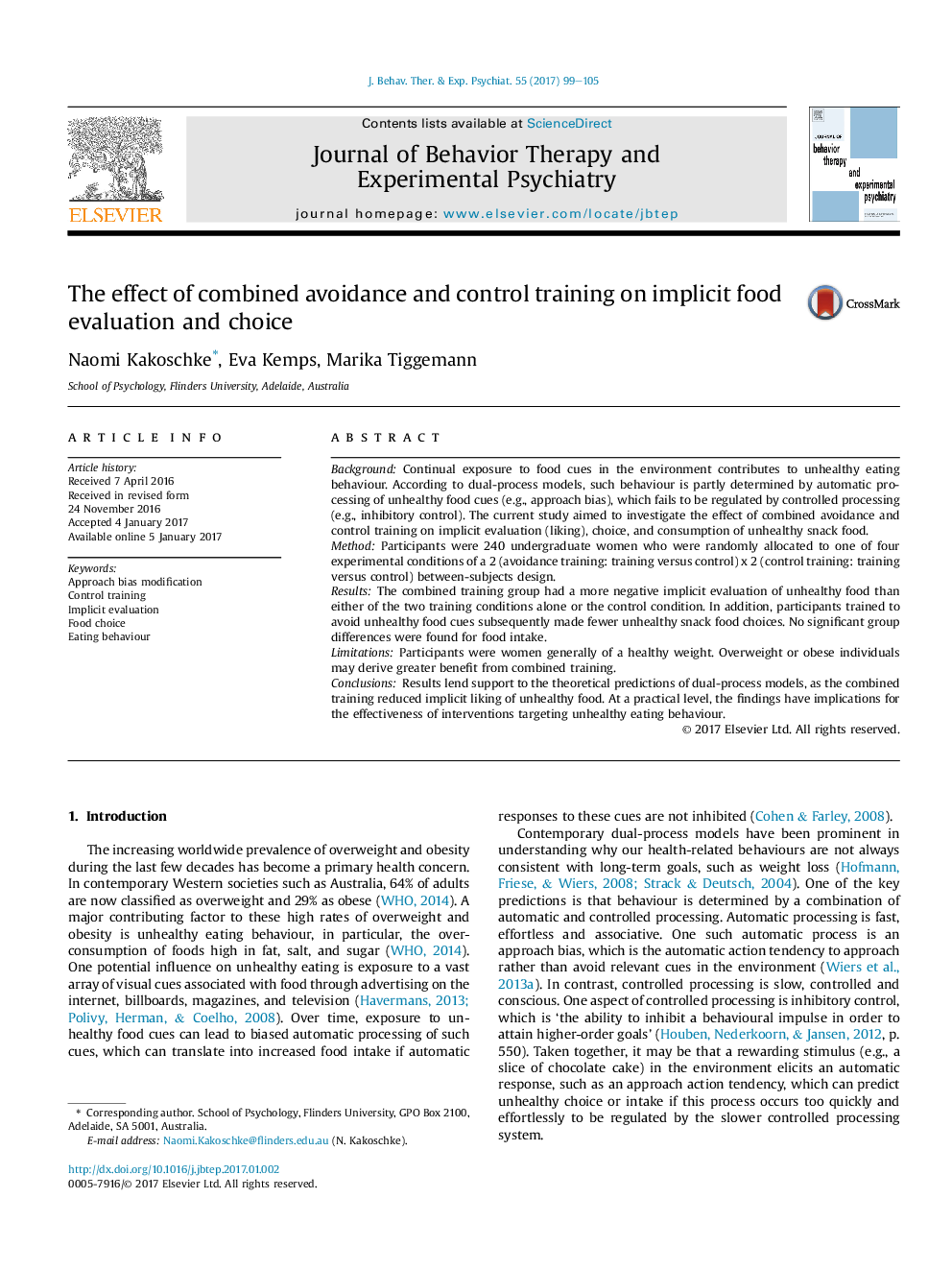| کد مقاله | کد نشریه | سال انتشار | مقاله انگلیسی | نسخه تمام متن |
|---|---|---|---|---|
| 5039058 | 1473061 | 2017 | 7 صفحه PDF | دانلود رایگان |
- Examined combined avoidance and inhibitory control training on eating behaviour.
- Combined training reduced implicit unhealthy food evaluation, but not food intake.
- Approach-avoidance training reduced choice for unhealthy snack food.
- Results provide support for theoretical predictions of dual-process models.
- Findings have implications for interventions targeting unhealthy eating behaviour.
BackgroundContinual exposure to food cues in the environment contributes to unhealthy eating behaviour. According to dual-process models, such behaviour is partly determined by automatic processing of unhealthy food cues (e.g., approach bias), which fails to be regulated by controlled processing (e.g., inhibitory control). The current study aimed to investigate the effect of combined avoidance and control training on implicit evaluation (liking), choice, and consumption of unhealthy snack food.MethodParticipants were 240 undergraduate women who were randomly allocated to one of four experimental conditions of a 2 (avoidance training: training versus control) x 2 (control training: training versus control) between-subjects design.ResultsThe combined training group had a more negative implicit evaluation of unhealthy food than either of the two training conditions alone or the control condition. In addition, participants trained to avoid unhealthy food cues subsequently made fewer unhealthy snack food choices. No significant group differences were found for food intake.LimitationsParticipants were women generally of a healthy weight. Overweight or obese individuals may derive greater benefit from combined training.ConclusionsResults lend support to the theoretical predictions of dual-process models, as the combined training reduced implicit liking of unhealthy food. At a practical level, the findings have implications for the effectiveness of interventions targeting unhealthy eating behaviour.
Journal: Journal of Behavior Therapy and Experimental Psychiatry - Volume 55, June 2017, Pages 99-105
